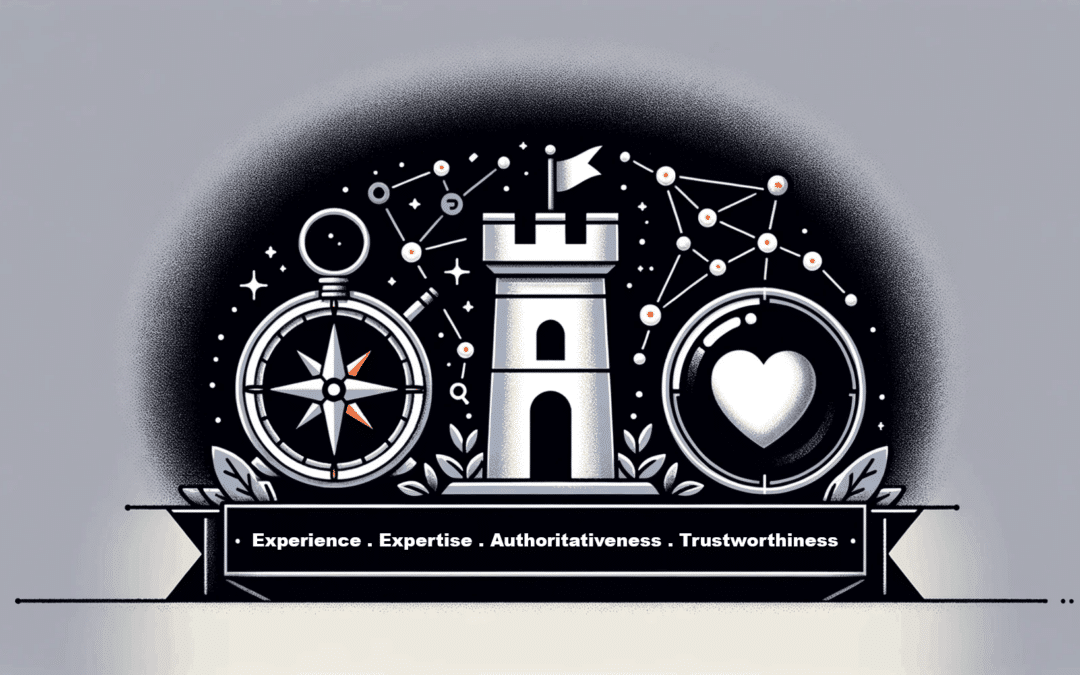Understanding E-E-A-T in SEO: The Key to Building Trust and Authority Online
In the ever-evolving landscape of Search Engine Optimization (SEO), the concept of E-E-A-T (Experience, Expertise, Authoritativeness, Trustworthiness) has emerged as a crucial framework for evaluating the quality of web content.
Originally rooted in Google’s Search Quality Evaluator Guidelines, E-E-A-T adds a layer of “Experience” to the well-established E-A-T principles, emphasizing the importance of personal experience and the practical application of knowledge in creating content that ranks well in search results.
This article delves into the components of E-E-A-T, illustrating how they collectively contribute to SEO success.
Experience: The Personal Touch in Content Creation
Experience refers to the firsthand knowledge or skill acquired by an individual through direct involvement or activity in a particular field.
In the context of SEO, content that incorporates personal experiences offers unique insights that cannot be found elsewhere, making it more valuable to readers.
For instance, a blog post about hiking trails written by someone who has actually explored them will likely be more informative and engaging than a generic compilation of trails sourced from various websites.
Expertise: Demonstrating Deep Knowledge
Expertise signifies a high level of knowledge or skill in a specific domain.
Google values content created by individuals or entities that possess a deep understanding of the topics they discuss.
This doesn’t necessarily mean holding formal qualifications; practical experience and a thorough grasp of the subject matter are equally important.
Expert content answers user queries accurately and comprehensively, enhancing the site’s reputation and search rankings.
Authoritativeness: Establishing Credibility
Authoritativeness is about being recognized as a reliable source of information in your field.
This recognition can come from the credentials of the content creator, the quality of the information presented, and external indicators such as citations from other authoritative sites.
Building authority involves not only displaying expertise but also earning trust and respect within the community through consistent, high-quality content contributions.
Trustworthiness: Earning User Confidence
Trustworthiness focuses on the credibility of the website and the content it hosts.
Factors affecting trustworthiness include the accuracy of the content, transparency about authorship, and the presence of reliable sources.
Secure and user-friendly website design also plays a critical role in establishing trust with visitors, encouraging them to value and share the content.
Implementing E-E-A-T in Your SEO Strategy
To leverage E-E-A-T for SEO, consider the following strategies:
- Highlight Personal Experience: Share personal stories and practical tips that add a unique perspective to your content.
- Showcase Expertise: Use detailed explanations, data-driven insights, and case studies to demonstrate your knowledge.
- Build Authority: Engage with your community, participate in relevant discussions, and seek opportunities for your content to be featured or referenced by authoritative sources.
- Ensure Trustworthiness: Regularly update content, include author bios with credentials, and maintain a secure, user-friendly website.
By focusing on E-E-A-T, businesses and content creators can improve their SEO performance, driving more organic traffic to their sites and enhancing their online reputation.
The addition of “Experience” to the E-A-T model underscores the value of personal insights and real-world knowledge in creating content that not only ranks well but also truly resonates with readers.

















